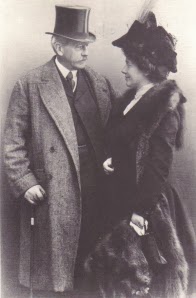Quick!
Let's quickly celebrate Pluto, today, on the anniversary of its 1930
discovery by Clyde Tombaugh, before we get to the silliness of New Mexico's new holiday, on March
13: Pluto is a Planet Day. (That's awfully reminiscent of Pluto
Demoted Day, which I wrote about here.)
Pluto
was once considered a planet, because we didn't know about all the
other objects in the solar system that are about as large as Pluto,
and that also orbit around the sun far from the gas giants. Because
we have discovered so many of these objects (at least one of which is
larger than Pluto, and several of which, like Pluto, are accompanied
by moons), the International Astronomical Union decided by vote to
relabel Pluto as a [cue dramatic horror-movie music] dwarf planet.
Which is so not a big deal, right? Yet some people still get upset about this so-called demotion...
 Other
labels for Pluto are Plutoid and Kuiper Belt Object. Basically,
Plutoids are dwarf planets that lie beyond (or mostly beyond) the gas
giants (as opposed to the only dwarf planet in the asteroid belt,
Ceres). Plutoids are the Kuiper Belt Objects that are large enough to
be near-spherical—most KBOs are shaped more like potatoes or other
knobbly shapes.
Other
labels for Pluto are Plutoid and Kuiper Belt Object. Basically,
Plutoids are dwarf planets that lie beyond (or mostly beyond) the gas
giants (as opposed to the only dwarf planet in the asteroid belt,
Ceres). Plutoids are the Kuiper Belt Objects that are large enough to
be near-spherical—most KBOs are shaped more like potatoes or other
knobbly shapes.
Google
says about Pluto:
- Pluto is the largest known object in the Kuiper Belt...
- ...the tenth largest body observed directly orbiting the Sun (as opposed to orbiting a planet)...
- ...and the second largest known dwarf planet...
Okay,
now back to Pluto's discovery:
Once
upon a time there was a wealthy man who loved astronomy. His name was
Percival Lowell. He had heard that scientists had carefully observed
Neptune's orbit around the Sun and had decided that it was possible
that yet another planet, even farther away than Neptune, was also
disturbing Uranus's orbit. Scientists speculated that there might be
a ninth planet circling the Sun.
Lowell
wanted to discover that possible ninth planet, which he called Planet
X. He founded the Lowell Observatory in Flagstaff, Arizona, and he
started a project in search of Planet X. From 1906 to Lowell's death
in 1916, they searched but didn't find a ninth planet.
 When
Lowell died, he left a lot of money to his wife Constance (of
course), but he also left a million dollars to “his” observatory
to keep up the search for Planet X.
When
Lowell died, he left a lot of money to his wife Constance (of
course), but he also left a million dollars to “his” observatory
to keep up the search for Planet X.
But
Constance didn't care a whit about Planet X. She wanted the million
dollars for herself! So she contested the will and dribbled away most
of the money in court fees. She finally (ten years later!) lost the
case, and the director of the observatory asked a young astronomer
named Clyde Tombaugh to resume the search for the ninth planet.
Tombaugh
was just 23 years old at the time.
Tombaugh
used a machine called a blink comparator. He quickly shifted back and
forth between two photos of the night skies that were taken of the
same spot in the sky but two weeks apart. What he was looking for was
something that had changed position or appearance in those two weeks.
Finally,
after more than a year of blink-comparator searching, Tombaugh
discovered a teeny light that had, as expected moved. More searching
of other photographic plates revealed that the new thing did indeed
move as a planet should. The news shot around the world: a ninth
planet had been discovered!
By the way, loads of suggestions for the new name poured in; even Constance Lowell made suggestions! Even though she had almost single-handedly wrecked the planet-finding project by taking the Lowell Observatory to court, she asked that the new planet be called Zeus (even though Jupiter is named after that same god—the planets use the Roman, not the Greek, names for the ancient gods and goddesses), and then she suggested Percival, and then she suggested – wait for it! – Constance!
Gag!
Luckily,
the observatory director ignored her suggestions and chose a Roman
god who had not yet been assigned a planet: Pluto, god of the
underworld, the Roman name for the Greek god Hades.
Also
on this date:
Plan
ahead:
Check
out my Pinterest boards for:
And
here are my Pinterest boards for:









No comments:
Post a Comment